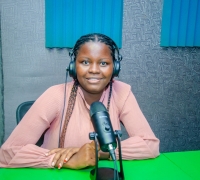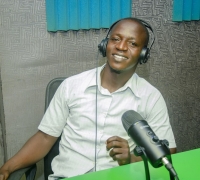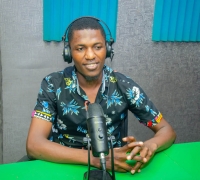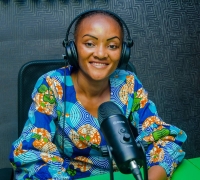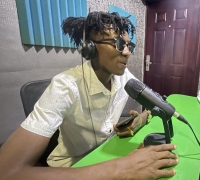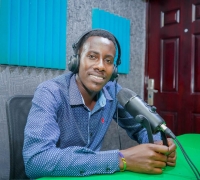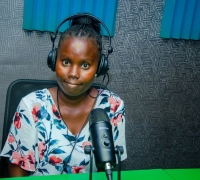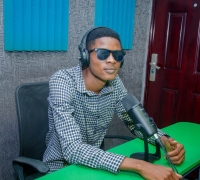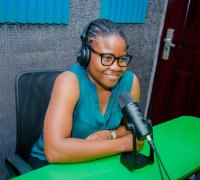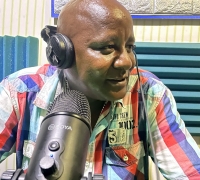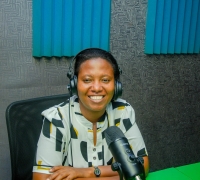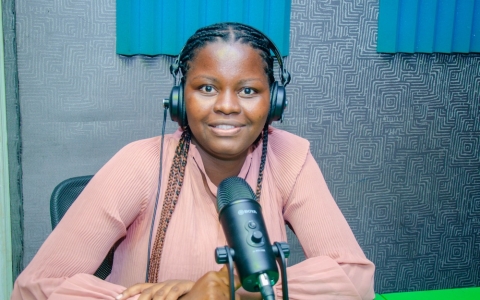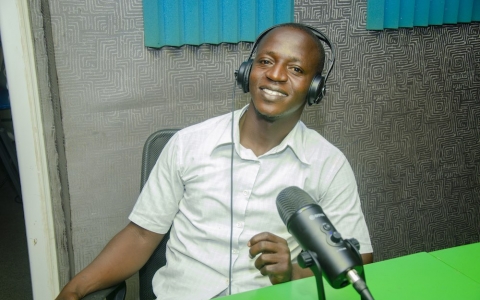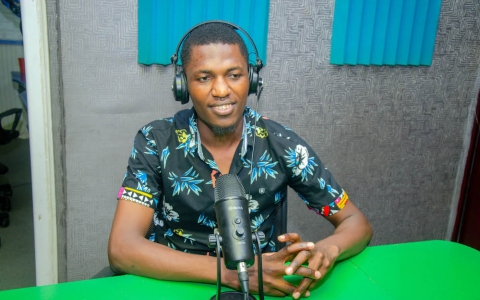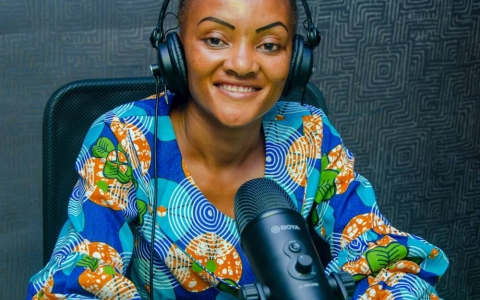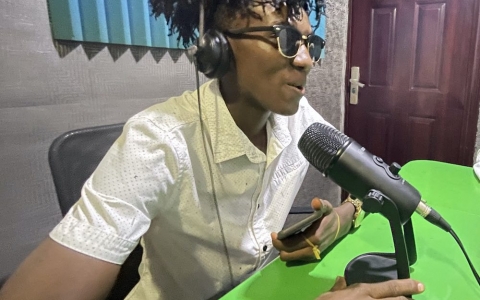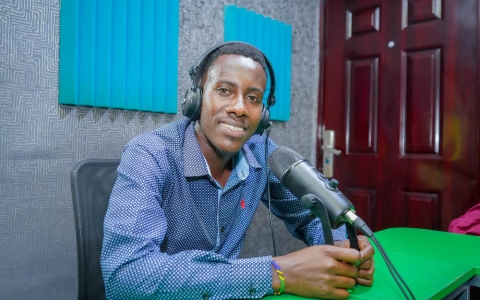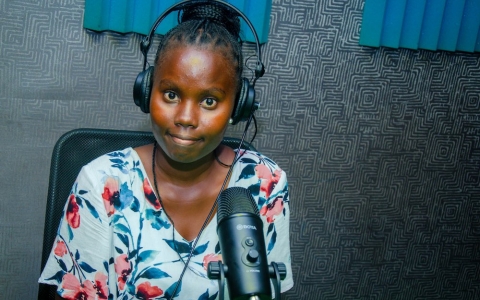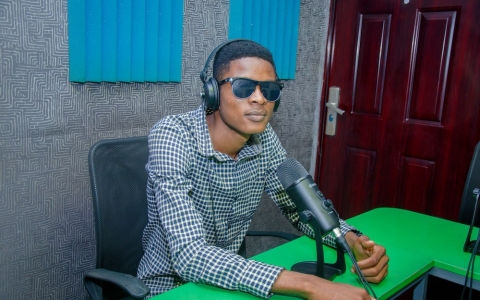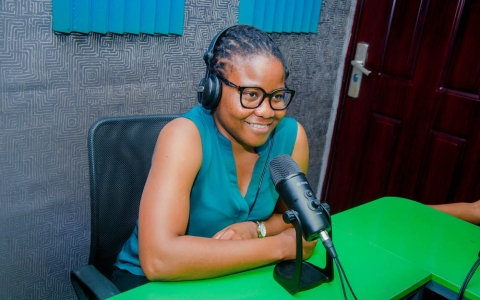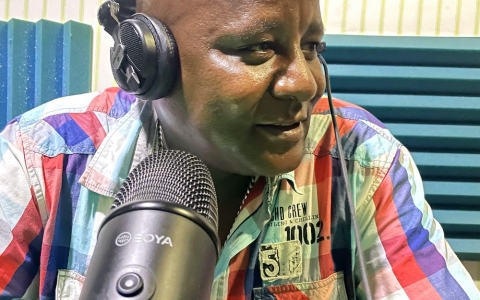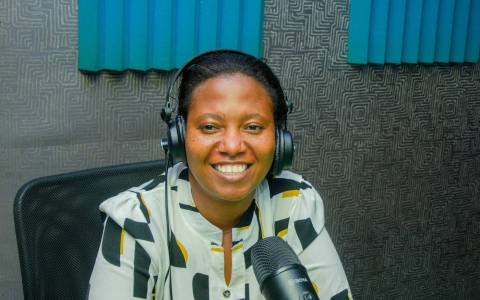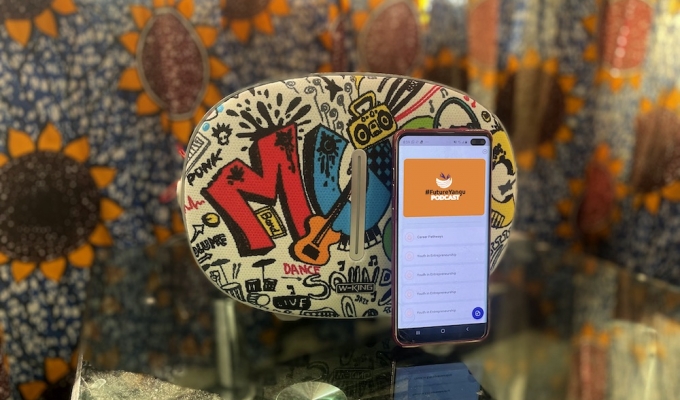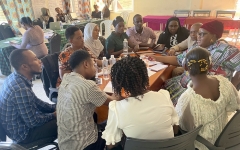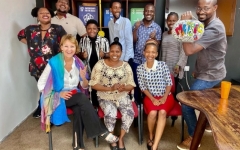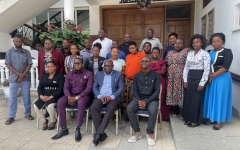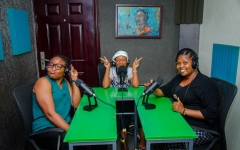Episode #02 - Your Dreams and Aspirations
Testimonial case story: Frida Josephat Rweyongeza
I am working in the finance sector, and I love fashion! I’m Frida Josephat Rweyongeza, I’m 26 years old and I grew up in Dar es Salaam, Ananasif Kinondoni which is a vulnerable, low-income neighbourhood. I loved fashion and clothing from a young age. I have enjoyed seeing my friends in nice clothing since primary school and would always comment to improve them. I have been following stylish TV shows as long as I can remember.
I was the third born to my family of four children in 1996. My parents had no formal education and no reliable income. Yet, they managed to take us all to school up to university level. My brother and sister were ahead of me and became my mentors as none of my parents had the capacity to follow up on my studies. The only time my parent would ask me anything was when I stayed home on a school day. My performance was largely self-motivated.
I went to Ananasif Primary School close to home. It went smoothly, I performed well and enjoyed it. I would always be among the best five students in my class. After that I was selected to Kambagwa Secondary School, where I continued to perform well. While in Form 2, I socialized with classmates who had a bad influence, involving themselves in stuff that didn’t relate to school studies. These friends would sometimes dodge classes to go to the shops where boys tried to lead us astray, but I managed to resist crazy behaviour. During that time my grades went down. My teachers advised me to refocus on my studies and leave that group of friends behind, which I did. My performance improved immediately.
But secondary school was tough. I went to pre-form one before starting secondary school.
Everyone insisted on getting an orientation on the new subjects as all would be taught in the English language. To keep up performance, lots of tuition was involved. I had to convince my parents to pay for these extra sessions, they managed reluctantly.
Finally, I graduated from Form 4, performed well, and got ‘selected’ to Tambaza High School for my A-levels. This was the school of my choice as I wanted to school nearby so my parents would not have extra expenses for my transportation. When in Form 2, I developed an interest in business studies because I enjoyed my teacher's bookkeeping classes. My Form 2 results were so good that I was placed in the science stream, although I never wanted that. Surprisingly, my father insisted I study science as well. I made a scene and cried to convince him not to push me into something that was not my choice. I wanted to study business and accounting.
Form 5 and 6 at high school were even tougher. I worked hard to get division 1, with 8 points. I was then selected to study a Bachelor of Commerce in Accounting, and could join my dream University, UDSM.
When I got the acceptance letter, I was the happiest I have ever been, it was a good feeling. But I was struggling financially, I could not afford the hostel, so I had to ask my uncle for support. I later applied for a loan from the Loan Board and was successful, otherwise I would not have been able to do complete my degree.
University is hard work, looking for the materials on your own, moving around lecture and seminar halls. Self-discipline is needed, as you have so much freedom and you must organize yourself. You need to be financially stable as there are a lot of expenses i.e printing, internet, bindings, food, bus fare, etc. To keep up with all this you have to be creative, you must think of something to generate extra income. I started a business of packing sweet baobab seeds (ubuyu) and selling them to my fellow students.
During the long wait to join University, my sister and I came up with a business idea -Mitumba Kuntu. We bought second-hand clothes (mitumba), picked out the trendy pieces and added value by washing and ironing these, then selling them for a higher price through our Instagram page @mitumbakuntu. We would buy something for 3000 tsh and sell it for between 10 000 and 15 000. It was a good business, even my mother got involved so it soon became a family business, supporting the buying of household groceries. I enjoyed starting a business, and I knew that I wanted to become a businesswoman.
I graduate in 2020, at the time I was two months pregnant. Sadly, I had complications, and lost my baby immediately after birth. My accounting profession does not offer a lot of opportunities for permanent employment, so I decided to take a short course in tailoring, as my passion is fashion. In that way I could apply my profession of accounting to developing my business in fashion, combining my two passions.
Apart from my business I am also doing an internship as an Assistant Accountant at the University of Dar es Salaam, at the Institute of Kiswahili studies. I decided to do that so that I don’t lose the knowledge I gained at university but also to get more experience. I would like to upgrade my skills in fashion and maybe one day do a CPA in accounting, but I am not aiming for employment in that field. I am more interested in understanding how I can get capital to grow my business and support my family.
